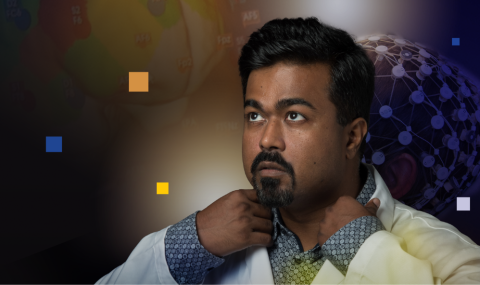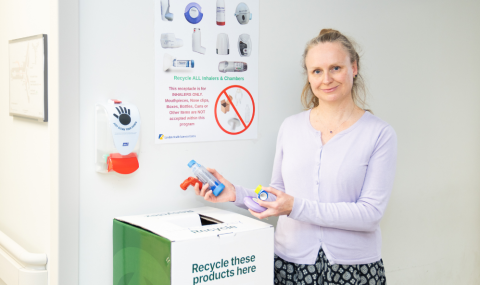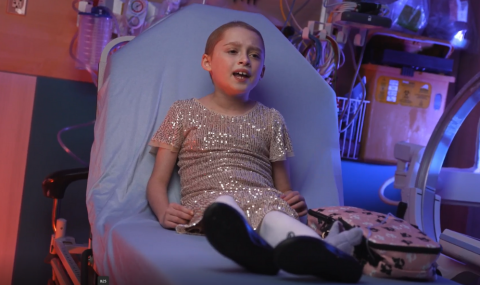Program Description:
The Clinical Neurosciences (CNS) program provides patient-centred care to acute neurology and neurosurgical patients. Specialty care in neurology includes Epilepsy, Movement Disorders, Neuromuscular Disorders, Regional Stroke Program, Regional Multiple Sclerosis Clinic, and Neuro-Critical Care. Neurosurgery Care includes Neurovascular, Neuro-oncology, Spinal Surgery, Spinal Cord Injury, Head Injury, and Epilepsy Surgery.
General Information:
Number of Beds
- 26 acute stroke beds
- 22 acute care general neurology and neurosurgical beds
- 6 bed Neuro-observation Unit (neurosciences critical care)
- 5 bed Hyperacute Stroke Monitoring Unit
- 8-bed Epilepsy Monitoring unit
Average Length of Stay
The length of stay for neuroscience patients varies related to the patient’s diagnosis and health care needs.
Neurosurgical patient’s average length of stay is 5 days.
Neurology patient’s average length of stay is 8 days.
Team Composition
The neurosciences program delivers patient/family-centred care within a collaborative inter-disciplinary team approach. The neurosciences team is composed of:
- Physicians/Fellows/Residents/Neuropsychologists/Psychologists
- Registered Nurses/Registered Practical Nurses
- Nurse Practitioners/Clinical Nurse Specialists
- Social Workers
- Occupational Therapists
- Physiotherapists
- Speech Language Pathologists
- Dieticians
- Communication Clerks
- Clinical Educator
- Nurse Clinicians
- Pharmacists
- Patient Service Associates
- Administrative Staff – Director, Manager, Coordinators
Nurse to Patient Ratio
The program’s model of care is Total Patient Care. The Nurse is responsible for the total care of his/her patients for the duration of the shift.
Day Shift
- General Ward – 1 RN to 3-4 patients
- Neuro-Observation and Hyperacute Stroke Monitoring Unit – 1 RN to 2 patients
- Epilepsy Monitoring Unit – 1 RN & 1 RPN to 8 patients
Hospital Site: Level7: University Hospital (General & Stroke Neurology, Neurosurgery), Level10: University Hospital (Epilepsy)
Night Shift
- General Ward – 1 RN to 6-7 patients
- Neuro Observation Unit and Acute Stroke Monitoring Unit – 1 RN to 2 patients
- Epilepsy Monitoring Unit – 1 RN & 1 RPN to 8 patients
Hospital Site: Level7: University Hospital (General & Stroke Neurology, Neurosurgery), Level10: University Hospital (Epilepsy)
Scheduling Information:
The program employs full-time, part-time, RNs and RPNS. The program offers both traditional and 2 Day/2 Night/5 off as schedule rotations.
The nurses work a 12-hour shift for both days and nights. Days are 0700-1900 and nights are 1900-0700.
Background Essentials:
- Previous medical and surgical clinical rotations during the applicant’s formal education are an asset to the program.
- New graduates are hired within this program.
- Well grounded patient assessment skills
- Demonstrated ability to work collaboratively in a team
- Demonstrated organizational and time management skills
- Demonstrated knowledge and application of patient-centred care
Professional Assets:
- Registration with the College of Nurses of Ontario – required
- BCLS – required
- Neuroscience Nursing Certificate through Mohawk College – an asset
- Member of RNAO – preferred
- Member of Canadian Association of Neuroscience Nurses – preferred
Professional Development:
- The program supports a neuroscience specific orientation program. This program includes formal classroom sessions and clinical time with an nurse preceptor. The amount of orientation time is geared to the unique needs of the new nurse.
- The Clinical Educator’s role is to ensure that educational opportunities are developed and implemented in an adult learning format.
- Professional development awards and scholarships are available through this program for neuroscience related educational programs.
- Training funds are available through this program for neuroscience related workshops.
- The neuroscience program funds nurse membership fees for the Canadian Association of Neurosciences Nurses.
- The neuroscience program supports and encourages nurse participation in LHSC and professional practice initiatives.
Student Consolidation:
LHSC is a teaching hospital and the neuroscience program values and supports the role of the student learner. The program supports students/interns/residents within all the health care disciplines and clerical support staff. All nurse preceptors receive preceptorship training prior to taking on this role.
Program Links:
- AXON (Canadian Neuroscience Nursing Journal)
- Clinical Neurological Sciences website
- Canadian Association of Neurosciences Nurses
- Canadian Nurses Association – Canadian Certification in Neuroscience Nursing


